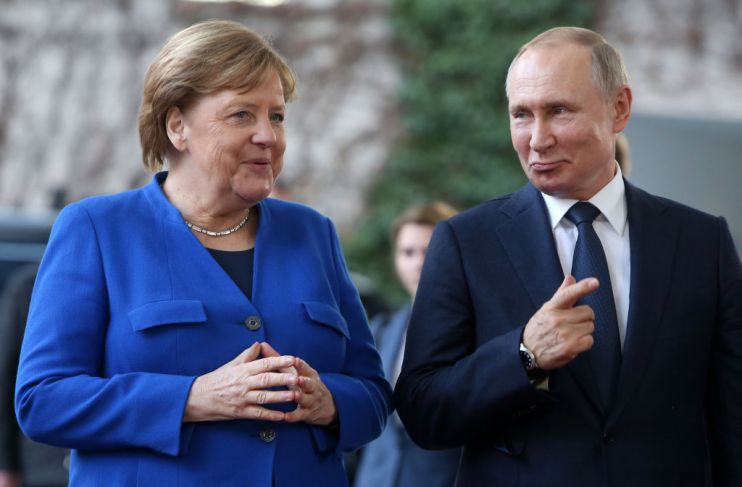Supping with the devil: Germany must wake up about Nord Stream 2

As far back as the 14th century, Geoffrey Chaucer put it very well in political risk terms when he said in “The Squire’s Tale” of Canterbury Tales, “He who sups with the devil should have a long spoon”. In mercantilist Germany’s case—where its foreign policy is all too often only an excuse for its export-driven neutralism—it is past time to stop serving as the useful idiot of Vladimir Putin’s Russia.
I’ve always had a sneaking realist respect for the nefarious abilities of the Russian President; simply put, he plays a bad hand well. Russia is economically stagnant (with a GDP the size of the state of Texas), riddled with corruption, demographically adrift and geostrategically now clearly a great power rather than a superpower.
Yet Putin’s strategic clarity and ruthless decisiveness means the Kremlin continues to punch well above its weight.
Unlike the drifting EU, Moscow’s overall plan remains clear and fixed. To retain its great power status, Putin believes he must dominate his “near abroad” neighbours: Belarus, the Caucasus, and especially Ukraine. In addition, the EU must be kept weak and divided. It is only in this broader geopolitical context that the Nord Stream 2 pipeline can be evaluated.
The pipeline, which is set to double Russia’s gas export capacity to Europe, runs directly from the country to Germany, Putin’s naïve and most willing customer. Not only will the new pipeline make Europe ever more dependent on Russian natural gas, eschewing Norwegian, American, and Qatari long-term alternatives; it neatly cuts Ukraine out of the picture.
The majority of Russia’s other pipelines to Europe run through Ukraine, allowing it to charge valuable transit fees, which help keep the rickety country afloat. Elegantly and at one stroke, Nord Stream 2 allows Putin to shackle Europe to Russian energy while at the same time knee-capping his foes in Kiev.
The UK, France, and the US have all seen Nord Stream 2 for the strategic power play that it is, objecting strenuously to its construction. Angela Merkel’s neo-isolationist Germany has instead ignored the pleas of its allies in the service of a very short-term mercantilist approach to its own increasing gas needs. The pipeline deal seemed all but done, barring the final approval of the German regulator and sign-off from Brussels.
Putin, ever playing the part of the competent Bond villain, has been leaving nothing to chance. The present migrant crisis on the Belarus-Polish border bears Putin’s fingerprints.
Moscow’s curtailing of additional energy supplies to a strapped Europe have led to a sharp and immediate increase in heating and electricity costs across the continent, just ahead of the coming cold winter.
Regarding the approval of Berlin’s energy regulator – the German Federal Network Agency – Putin blandly made his strategic blackmail scheme clear even to the most obtuse, saying it was “100 per cent” certain that “tensions on the European energy market would significantly decrease” if Nord Stream 2 is waved through.
This is where an oblivious Germany—having supped with the devil in Chaucer’s terms—seems to have belatedly woken up. Remarkably, the German regulator has suspended the certification process for Nord Stream 2, until the Nord Stream 2 company, which is registered in Switzerland, transfers the bulk of its assets and budget to a subsidiary domiciled in Germany. This technicality has given a rudderless Berlin a last chance to reconsider the ruinous deal itself.
Merkel’s Germany, full of endless, empty platitudes about the rule of law and the glory of Europe, must at last put its money where its mouth is. The continuation of a neutralist Germany—given the country’s dominant position in the EU— dooms that great power to the increasing strategic irrelevance that has been its late during the twilight days of the gormless Merkel years.
Neither a Gaullist France nor an Atlanticist northern and eastern Europe have the strategic heft to overcome Germany’s disastrous self-abnegation on their own. Only a Berlin fully anchored into the west can, with the help of the others, set the EU on course for strategic relevance in the new era we find ourselves in.
The Nord Stream 2 pipeline has emerged as the litmus test for both Germany and the EU, the canary in the coal mine as to whether Europe will be at the great power table in our time, or on the great power menu.
The days of supping with the devil must at last come to an end.